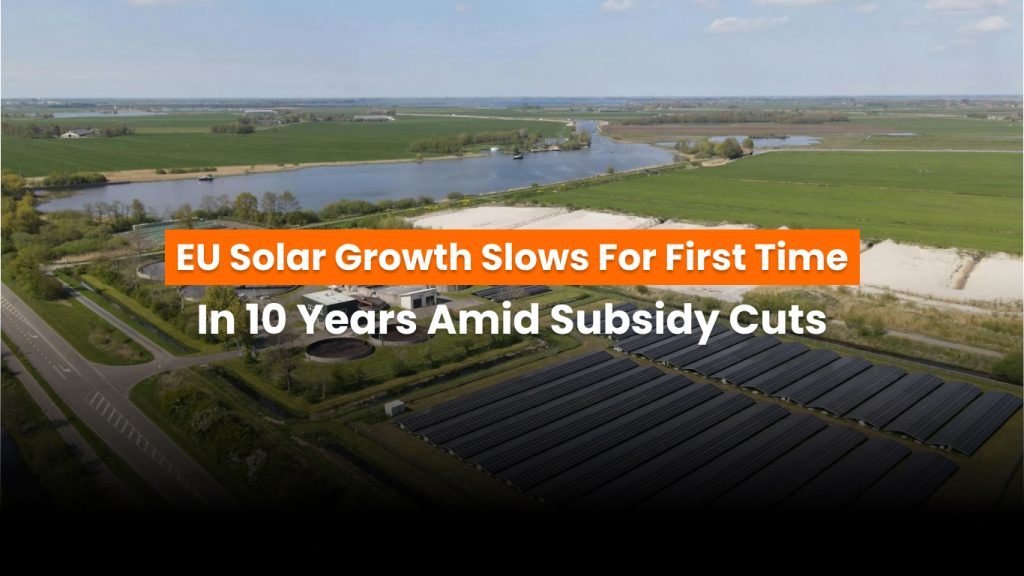EU Solar – Europe’s rapid expansion of solar energy is facing its first slowdown in over ten years. Reuters reports that the European Union is projected to add 64.2 GW of new solar photovoltaic capacity in 2025, down 1.4% from the 65.1 GW installed in 2024, marking the first year-on-year decline since 2015.
This downturn is largely driven by governments across the bloc, including Germany, France, and the Netherlands, scaling back incentives for rooftop solar installations. Residential rooftop solar is expected to account for just 15% of new capacity in 2025, down from approximately 30% during 2020–2023.
Slump comes amid shifts in policy and investment sentiment
SolarPower Europe data highlights that solar generated 22% of EU electricity in a recent month, making it the bloc’s single largest source of power generation. Yet this symbolic milestone comes at a critical juncture as the EU is projected to fall short by 27 GW of the 750 GW required to meet its ambitious 2030 solar capacity target.
Industry insiders point to a broader context: economic pressures, shifting political priorities, rising interest rates, and misinformation about incentive changes are discouraging new rooftop solar installations. In Germany, for example, confusion over changes to feed-in tariff programs and renewable heating laws has significantly dented consumer adoption.
Implications for clean energy strategy
Although utility-scale solar installations remain more resilient, driven by competitive auctions and hybrid solar-plus-storage tenders in countries like Germany and Italy—overall adoption is losing momentum. With declining residential demand and cooling investor confidence, Europe faces a growing risk of missing its 2030 renewable energy goals unless policy support is recalibrated.
The EU’s solar sector is signaling its first real downturn, largely due to subsidy rollbacks, policy uncertainty, and consumer hesitation. As residential rooftop uptake declines sharply, utility-scale projects and auction-based deployment may partially buffer the slowdown. However, without renewed policy clarity and public support, Europe may struggle to hit its clean energy targets.
For renewable energy leaders, this moment underscores the importance of strategic advocacy and investment models that adapt to shifting incentive landscapes, and prioritize sustained solar growth across every segment.




